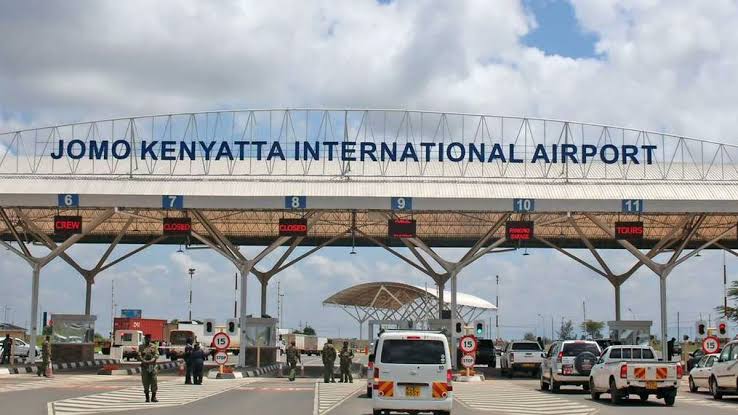
Grounded Flights, Chaotic Scenes at JKIA as Workers Protest Adani Deal.


There were chaotic scenes at Kenya’s main airport overnight as staff went on strike early Wednesday over a planned takeover by Indian conglomerate Adani Group.
A source told AFP that Nairobi’s Jomo Kenyatta International Airport (JKIA) was at a complete standstill early Wednesday, with management scrambling to address the disruption. “The entire operation has been affected; flights are grounded, and passengers are stranded,” the source said.
The Kenyan Aviation Workers Union (KAWU) confirmed on X (formerly Twitter) that its strike started at midnight, citing concerns over potential job losses and a lack of transparency in the deal. “We cannot allow the livelihoods of thousands of Kenyan workers to be threatened by this deal,” a union spokesperson stated.
Images on social media showed frustrated passengers crowded around baggage carousels, trying to retrieve their luggage as the strike took effect.
The unrest was sparked by plans to lease JKIA to India’s Adani Group for 30 years in exchange for a $1.85 billion investment, a move that has ignited widespread anger among airport workers and the general public. Critics argue the deal could lead to significant job losses for local staff and deprive taxpayers of future airport profits.
“Adani’s entry means outsourcing of services, which will likely result in mass layoffs of our people,” said one of the protesting JKIA employees.
Freight and passenger fees from JKIA contribute more than five percent to Kenya’s GDP, making the airport a significant economic asset. This has led to fears that handing over control to a foreign entity could impact national revenues.
The Law Society of Kenya and the Kenya Human Rights Commission won a temporary injunction from the High Court on Monday, arguing that the deal lacked “transparency” and did not involve sufficient public participation.
Despite the backlash, Kenya’s government has defended the deal as a necessary step to refurbish and modernize JKIA. “The airport’s infrastructure is outdated; we need a serious investment to bring it up to international standards,” said a government official during a recent press briefing.
JKIA, one of Africa’s busiest hubs, handled 8.8 million passengers and 380,000 tonnes of cargo in 2022-23 but has often been plagued by power outages and leaking roofs. The Kenya Airport Authority stated that under Adani’s management, a second runway would be added, and the passenger terminal would be upgraded.
As the strike continues, the standoff at JKIA highlights the tension between development ambitions and the concerns of local workers about job security and fair governance in Kenya’s most crucial infrastructure sectors.
Article By Suzy Nyongesa.
